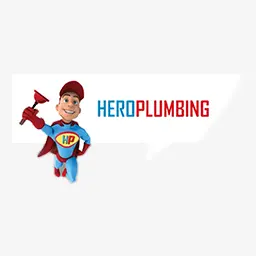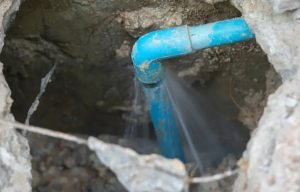Table Of Contents
The Lifespan Of A Hot Water System
A hot water system is a vital investment, so you need to ensure that you are getting the most value for money when you buy one. You need to be sure that the hot water system you get can last as long as you need it. This leaves you with the big question of how long does a hot water system last?
The lifespan of a hot water system depends on multiple factors, and in this article, we’ll go through the factors and variables that can make your hot water system last longer. But before we get into that, let’s look at the different types of hot water systems.
Types Of Hot Water Systems
The main types of hot water systems are:
- Electric hot water systems
- Gas hot water systems
- Solar hot water systems
- Heat pump water heaters
Electric hot water system
Electric hot water systems work by heating water with the aid of an element within the storage tank. These tanks are of varying sizes and are very affordable. However, they are not usually energy efficient.
There are also electric hot water systems that are instantaneous or continuous flow hot water systems, and they are designed to heat water when the hot tap is on.
Gas hot water system
Gas hot water systems are like their electric counterparts, and the only difference is that they use a gas burner and not the element. Gas systems have smaller sizes than electric tanks, and they also heat water faster.
Gas hot water systems also have the option of instantaneous or continuous flow hot water systems. These are very popular and can be found in many homes today. They are generally energy-efficient and compact in size.
Solar hot water system
The green option has rapidly become a popular option on the market today, and many people are switching to solar hot water systems. The solar hot water system operates on the free energy from the sun rather than gas or electricity.
These systems are designed with different solar panels, usually mounted on the roof of a house. It’s worth mentioning that solar hot water systems are also connected to electricity or gas for use on days that are not sunny.
Heat pump water heater
Although many regard this as the electric hot water system, it’s worth noting that the heat pump hot water system is more energy-efficient, although it’s louder to run and more expensive to install. The technology of the heat pump hot water system is a lot like that of a fridge.
However, the heat pump extracts heat from the air and transfers it into the water. Apart from these four types of hot water systems, one thing to note is that they can all be grouped under two categories. The two categories are:
- Storage: These water heating systems work by heating water and then storing the water in a tank. It’s a widespread type, and most of the hot water systems in many homes use tanks. However, tank-based hot water systems tend to corrode easily, leak, or develop other faults.
- Continuous: People usually call this the instantaneous hot water system, and unlike the storage hot water systems, they don’t have tanks. The heating system is designed to heat water only when demanded. Also, they are designed to last longer than the storage hot water system. On average, they can last for up to 20 years.
Lifespan Affecting Factors Of Hot Water Systems
Five different factors can determine how long a hot water system will last.
Quality
This is an essential factor that you might have already guessed. Like with everything you buy, you can generally expect it to be of higher quality when you pay more for a hot water system. One of the main reasons your hot water system may need a replacement is when it starts to corrode and is unable to hold water over time. Thus, you need to buy a high-quality tank to have hot water for a more extended period.
Material
The next factor that can influence the lifespan of your hot water system is the material it is made from. Tank corrosion is a significant point of concern with hot water systems, so the material used in making the tank is an essential factor to consider. Here’s a rough guide to give you an idea of what to expect from the different materials used in making the tank.
- Heat pump – approximately 10 years
- Stainless steel tanks – between 8 and 12 years
- Glass-lined or enamel-lined tanks – between 5 and 10 years
- Copper tanks low-pressure gravity-fed – around 25 years
It’s crucial to note that these numbers may be higher depending on brand and other factors.
Type
It’s impossible to use the same guideline to judge every type of hot water system, whether electric, solar, gas, or instantaneous. However, hot water systems with tanks generally tend to last shorter because the tank corrodes with time. Instant hot water systems, on the other hand, can last longer since corrosion is not a mechanism for them.
With that said, you can expect an electric hot water system to last between 10 to 15 years, while a gas system has a lifespan of around 8 to 12 years. The tank generally has a key role to play in determining how long the electric or gas hot water systems would last. Also, the stress level on the heating component for gas and electric systems is different.
Usage
Like with other machines you have used, using a hot water system will determine how long it will last. In general, heavier usage causes more strain on the system. Even though all the components in the system can withstand significant temperature changes, there are limits to what they can handle.
Water quality
Many people fail to realise that the water quality in their hot water system is a significant factor influencing its lifespan. The water quality is not the same for every area, and some areas mainly have hard water. If your hot water system has hard water processing through it daily, it will cause corrosion to occur even faster, thereby reducing its lifespan. However, you can minimise the influence of hard water on your system by performing regular maintenance on it.
How Long Do Hot Water Tanks Last?
We have covered the different factors that can influence the lifespan of a hot water system. Considering these factors, you can generally expect your hot water system to last for up to 7 to 15 years on average. This is for people with tanks. If you use a tankless hot water system, you can expect it to last longer.
Here’s a breakdown of how long the different types of hot water systems should last:
- Electric hot water systems with the tank: 10 to 15 years
- Electric hot water systems without tank: 20 years
- Gas hot water systems with the tank: 8 to 12 years
- Gas hot water systems without tank: 20 years
- Solar hot water systems: 10 to 20 years
Today, most of the modern hot water systems that you’ll find on the market don’t come with tanks, and they can last longer than conventional hot water systems. With regular maintenance and regulation, you can easily increase the lifespan of the hot water system by ten more years.
How To Make Your Hot Water System Last Longer
After installing your hot water system, you need to ensure that you maintain it properly, and for this, you’ll need to check the system regularly. In some cases, you may need to call a technician to look at the hot water heater to detect issues before it becomes severe.
For example, you may need to replace the anode in the tank to add a few years to the system’s lifespan. In addition to performing regular maintenance, you’ll also need to know how to check the system for corrosion, cracks, and leakage.
What’s certain is that routine inspection will alert you of any potential issue and allow you easily avoid it. When contacting a professional for your hot water system repairs and maintenance, it’s vital to ensure that you get a fully certified technician to handle the job for you.
Does Your Hot Water Heater Need Replacing?
Are you wondering how you can tell when your hot water heater needs a replacement? There are a few signs that you may need to look out for, and they include the following:
- Noisy tank: If you notice a sizzling or hissing sound from the tank, it’s a sign that the water heater is ageing. You’ll need to check the cause of the sound to ascertain whether it’s from a faulty valve or due to another reason.
- If you notice that the water is not hot or hot water runs out quickly, it’s also a sign of a problem, and you’ll need to run checks to confirm whether the issue is from a broken heating element or even from the thermostat.
- Rust and sludge in the tank: You’ll also need to check for rust and sludge to prevent them from accumulating in the tank. If you notice rust and sludge accumulating in your water heater’s tank, it’s a sign of corrosion.
Do You Need Emergency Plumbing Services?
Suppose you are not sure whether your hot water system is acting correctly. In that case, you may need to call a professional to check, and as mentioned earlier, be sure that it’s a certified and licensed professional that you work with. They can also prevent other plumbing issues, such as leak detection or blocked drains.










